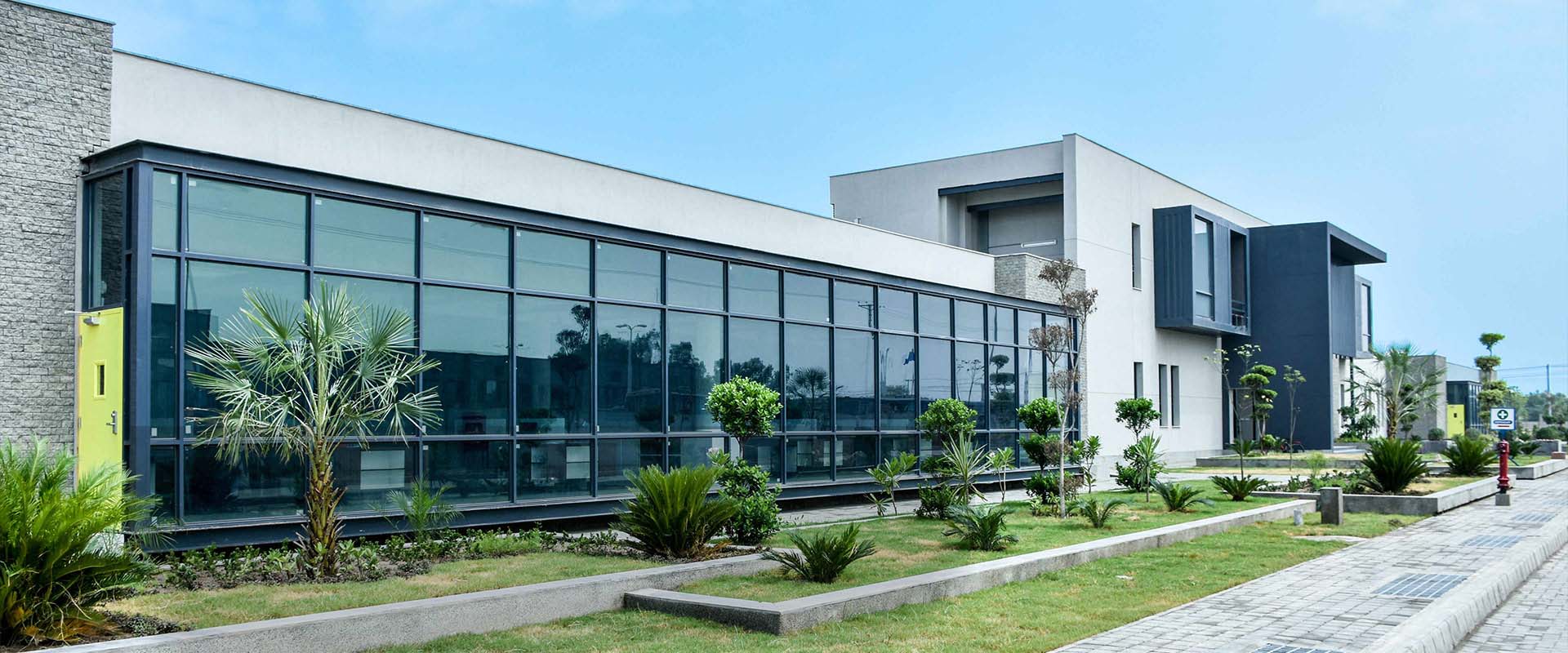
Socklab is part of Interloop; the world’s largest producer of socks. Interloop is based in Pakistan and makes corporate social responsibility a priority.
Socklab can be found at Van den Bergsweg 37, 7442 CK in Nijverdal (in the east of the Netherlands). We handle the product development, design, marketing and sales from this location.
Socklab’s socks are made at Interloop’s factories in Pakistan. Our production systems and processes meet the strictest ecological standards, ensuring respect for people and the planet. Read more about our production process here.
We think we can make the socks we wear better. Better quality, better for our feet and better for people and the planet. We believe in continuous innovation and we are leaders in the field of sustainability. Our Cradle to Cradle Certified™ GOLD socks combine maximum comfort for the wearer with a minimal ecological footprint.
Socklab is the world’s first producer of Cradle to Cradle Certified™ GOLD socks. Read more about our Cradle to Cradle socks here.
Socklab’s socks are made at Interloop’s factories in Pakistan. Our production systems and processes meet the strictest ecological standards, ensuring respect for people and the planet. We take our inspiration from the natural world, where waste is a nutrient. This means that all products return to the production, consumption and regeneration cycle at the end of their lifespan.
The Cradle to Cradle Certified™ GOLD socks are available to purchase in our online shop. Our socks are also sold as private labels or through retail channels.
You can always recognise our socks by the Socklab logo.
The Cradle to Cradle Certified™ GOLD socks are made at Interloop’s factories in Pakistan. Our production systems and processes meet the strictest ecological standards, ensuring respect for people and the planet.
For the Cradle to Cradle Certified™ GOLD socks, Socklab only uses organic materials that take people and the planet into account. The raw materials are chosen based on strict ecological requirements. The fibres are tested extensively in advance, to verify their origins and composition. All the materials in our socks can be reused endlessly or broken down harmlessly (compostable).
The principle of the Cradle to Cradle Certified™ GOLD standard means that both the materials and the production processes are sustainable. The production processes in Pakistan are environmentally friendly and we ensure good working conditions throughout the production chain. We work with our suppliers to eradicate unfair practices.
Throughout the entire production process, from spinning to weaving and finishing, 50% of the energy is reused. During the dyeing of socks, the percentage of renewable energy is even higher at 90%.
Only 16 out of 1600 possible dyes meet Socklab’s strict requirements. All the pigments used during the dyeing process are chosen based on their regeneration profiles.
In accordance with the Cradle to Cradle principle, all the raw materials that we use in our socks are completely and endlessly reusable, without losing any of their value.
The quality of the raw materials is certified by the Environmental Protection Encouragement Agency (EPEA) in Hamburg.
Socklab’s socks carry the Cradle to Cradle Certified™ GOLD Certificate. Our socks are also OEKO-TEX certified. That means they meet this uniform standard with respect to harmful substances. Find out more about the quality standards that we meet here.
Socklab’s socks carry the Cradle to Cradle Gold Certificate. Our socks are also OEKO-TEX certified. That means they meet this uniform standard with respect to harmful substances. Find out more about the quality standards that we meet here.
The Cradle to Cradle Certified™ GOLD Certificate is a guarantee of high quality with respect to material choice, reuse, the production process and the impact on people and the planet. There are five levels of product certification: Basic, Bronze, Silver, Gold and Platinum.
OEKO-TEX is a testing and certification system for textiles. The standard focuses on limiting the use of harmful substances in relation to the health of the end user.
Socklab’s socks are the first Cradle to Cradle Certified™ GOLD socks in the world. Our socks are 100% compostable without causing any harm to the environment.
In accordance with the Cradle to Cradle principle, all the raw materials that we use in our socks are completely and endlessly reusable, without losing any of their value.
Socklab only uses organic materials. The raw materials are chosen based on strict ecological requirements. The fibres are tested extensively in advance, to verify their origins and composition.
The quality of the raw materials, textiles, energy sources and production processes is certified by the Environmental Protection Encouragement Agency (EPEA) in Hamburg.
Socklab’s Cradle to Cradle Certified™ GOLD socks are known for their high quality and long lifespan.
… [more info]
We monitor the conditions in our factories continuously. On the basis of the Code of Conduct (which is based on the ILO Convention and the United Nations’ Universal Declaration of Human Rights) we take responsibility for fair social conditions and working conditions through a step-by-step process.
We work hard to ensure good conditions in our own factories, but we are also dedicated to improving unfair practices throughout the entire chain. We work together with our suppliers to achieve this. That’s why our parent company, Euro Sox Plus, works exclusively with BSCI or SA8000 certified manufacturers that are aware of employees’ rights during the production process.
The manufacturers that we work with must respect their employees’ rights. This means:
We have nine sustainability goals at our factories, which focus on People, Planet & Prosperity. These goals form the basis for our sustainability initiatives and allow us to ensure that we make a valuable contribution to the world around us.
At our factories, we stand for: